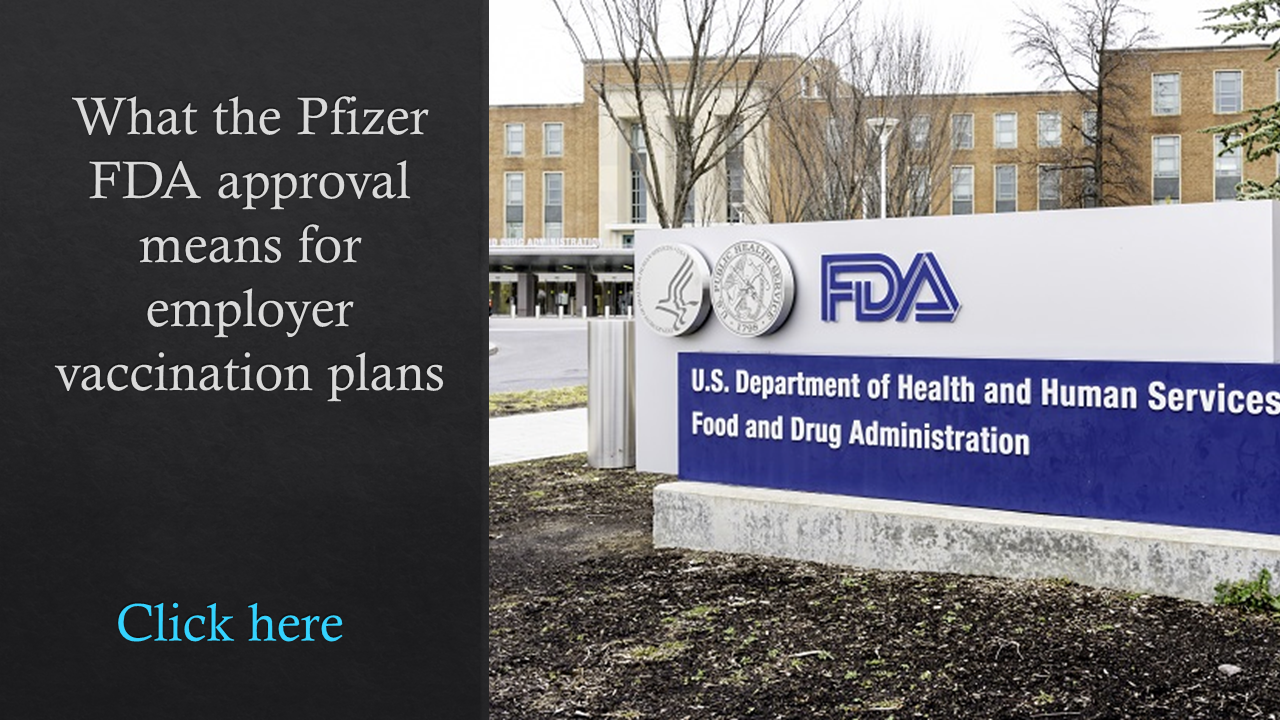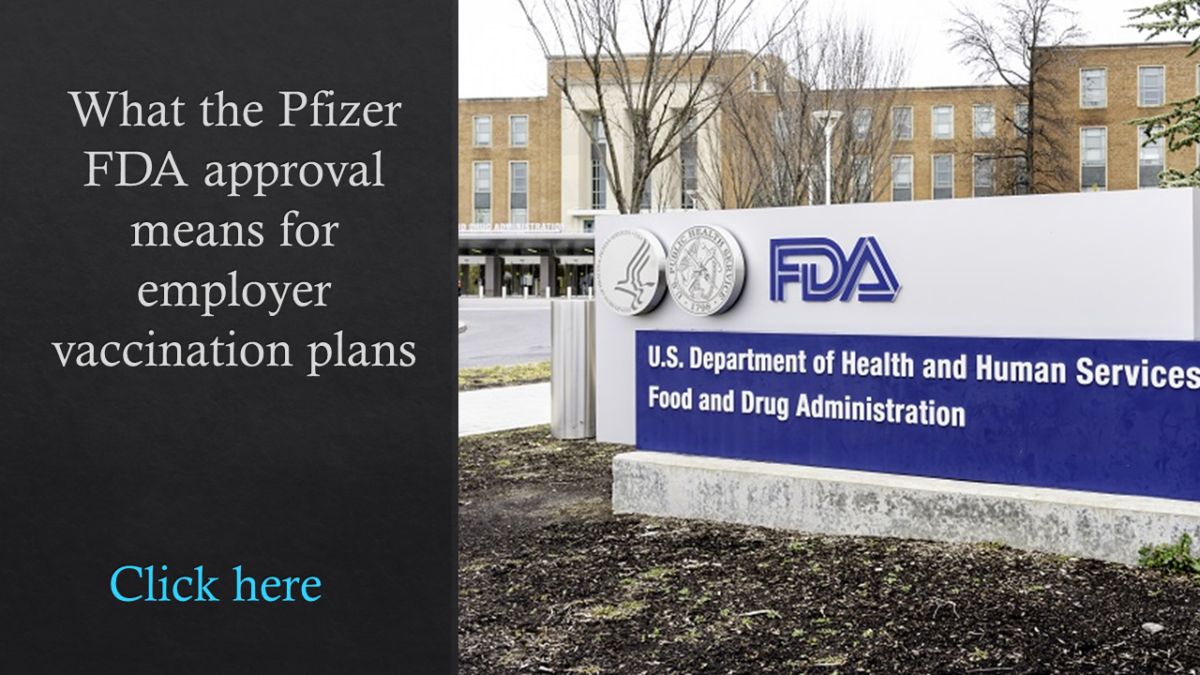Will something else please take the place of the pandemic in the news cycle?
What remains top of the charts on the pandemic playlist now is the question of vaccine mandates and the Hamlet-like behavior of most U.S. employers. Will they require them? Or will they just continue to encourage people to get them?
The current act in this play is the “fake” mandates: Everyone is required to be vaccinated but, if you aren’t, you’ll have to wear masks and be tested. Then, some are walking that back further by encouraging everyone to keep wearing masks so that we can’t easily tell who isn’t vaccinated and make them feel uncomfortable.
 A lot of observers, even at the beginning of the vaccine rollout this past spring, were wondering why employers didn’t just mandate them for employees and get it over with. After all, we already mandate drug tests. Many wellness programs require invasive procedures—blood tests for serum cholesterol levels, for example. All states require children to be vaccinated to attend public schools. Why is it that even some hospitals do not require their workers to be vaccinated against COVID-19?
A lot of observers, even at the beginning of the vaccine rollout this past spring, were wondering why employers didn’t just mandate them for employees and get it over with. After all, we already mandate drug tests. Many wellness programs require invasive procedures—blood tests for serum cholesterol levels, for example. All states require children to be vaccinated to attend public schools. Why is it that even some hospitals do not require their workers to be vaccinated against COVID-19?
We know the answer. Because it is a political issue.
Besides the employees who might have religious or medical reasons for not wanting to be vaccinated—who are a tiny fraction of the story—the vast majority of those who are unvaccinated think they shouldn’t have to do so. Some of those thought COVID-19 was a hoax, that even if it was real it wasn’t serious and that vaccines can’t be trusted—along with the all-purpose “it’s my right, and you can’t make me.”
Smart employers were thinking, “We don’t want to have a big fight with a lot of employees over something they think is political. Let’s wait until employees decide to do it on their own, maybe entice them with incentives like bonuses for doing so.” That is why we see these otherwise inexplicable policies where employees must be vaccinated at headquarters (where people are likely to get the shot anyway) while those on the frontlines, where they are more likely to oppose vaccines, are just encouraged to do so.
Related: Major trend coming as COVID-19 vaccines show up in job listings
I think that calculus has changed now, and here are three reasons why.
First is simply that, as more people are vaccinated now—70% of U.S. adults have had at least one shot—there are fewer people who need to be pushed.
 The second reason has to do with the pandemic issue that is hitting employers in the pocketbook: It’s hard to fill jobs, especially service jobs, because a lot of people are not coming back to work. As I described in a recent column, despite the widespread belief that this is caused by extended unemployment benefits—which ended in 26 states weeks ago now—the No. 1 reason employees aren’t returning (by far, in at least four surveys I’ve seen) is their fear of catching COVID-19.
The second reason has to do with the pandemic issue that is hitting employers in the pocketbook: It’s hard to fill jobs, especially service jobs, because a lot of people are not coming back to work. As I described in a recent column, despite the widespread belief that this is caused by extended unemployment benefits—which ended in 26 states weeks ago now—the No. 1 reason employees aren’t returning (by far, in at least four surveys I’ve seen) is their fear of catching COVID-19.
The third reason is that the majority of the country, that 70% of people who are vaccinated, is running out of patience with those who are not. This is turning up in news stories across the country, even in states where opposition to vaccines was strong. There is a distinct decline in sympathy for those who account for the new surge in cases: 97% of patients who need to be hospitalized with COVID-19 now are unvaccinated. If you are worried that mandating the shot might cause some people to quit, consider also that those who have gotten it may not want to work with those who have not.
See also: Cut workers’ fear of COVID-19 vaccines with these 4 strategies
